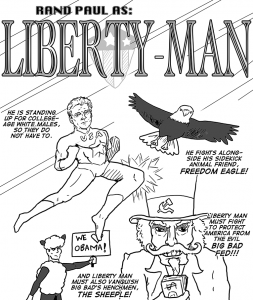Never was I more certain of how powerless the innocent are during acts of terrorism until, from thousands of miles away, I saw my own city under fire. I was born in Mumbai—or Bombay, as it is commonly referred to—and I have always looked forward to visiting my family and friends at my “second home” during the summer. Mumbai, which until recently had been enjoying an economic renaissance, is a city of life, leisure, and infinite possibilities. During my many trips, I never once feared for my safety. If anything, I was more afraid of watching a Bollywood film at INOX, a mall in Nariman Point, Mumbai’s business district, with my film-obsessed cousins.
Given my deep love for Mumbai, the events of the past week have left me shocked, saddened, and angry. It was particularly hard for me to think of my father, who is currently abroad on business in the city. I cannot bring myself to believe that he could have been at dinner or at a meeting at one of the hotels that was under siege. As unbelievable as it may seem, however, he had an appointment the evening of the attacks at the Taj Hotel, one of the two hotels besieged by terrorists last week, but his meeting was moved at the last minute. My uncle ate lunch at the Golden Dragon, a Chinese restaurant, only hours before terrorists casually walked through the lobby throwing grenades and shooting innocent bystanders. Watching CNN and not knowing where any of my immediate family was made my heart stop. They could have been there.
I could have been there.
I worked across the street from the Oberoi Hotel, the other hotel attacked by terrorists, and visited the Taj at least three times a week this summer. These locations are centers for business and nightlife–the Taj is one of the leading hotels in the world and remains an iconic symbol for the people of India. When I saw the roof ablaze and the windows shattered, I only hoped that the Indian Special Forces would come to the rescue of the innocent people inside. It took three days for the crisis to end. These horrific events have revealed the inability of the city’s infrastructure and security system to prevent terrorist attacks.
It is common to say that after such an event, the city will never be the same. The resilience of Mumbai renders such a statement absolutely false. I was in Mumbai during the terrorist attacks of 2006, when trains were loaded with bombs that killed over 200 people. The very next day the city was up and running again.
The real hurdle is thinking about how to create government accountability in the restructuring of India’s homeland security plan. The creation of the U.S. Department of Homeland Security amounted to the largest restructuring of a federal department in American history. Though some question how efficiently this federal department runs, we have not experienced a terrorist attack on American soil since September 11th, 2001, a triumph for which President Bush will likely receive credit only after he has left office.
Several problems inhibit India’s ability to create a homeland security department similar to the that of the United States. How can the government of a country effectively protect its people in a city where bribing state officials is commonplace? What Mumbai needs is a strong leader willing to set a new standard of government accountability, while at the same time respecting the freedoms of the people of the world’s largest democracy. Such a balance will be tough to strike, but the people of India have suffered too much already. My cousin has gone to three funerals in one week. The coming months will be difficult for the government of India. I pray for the lives lost during the recent attacks and hope for a new day where Mumbai natives never—or at least seldom—have to look over their shoulders when they enter a restaurant or a hotel. If the government fails, however, I am left with an immeasurable amount of faith in the people of this great city.
Together, we will prosper.
Mumbai bombs felt 8,000 miles away
December 4, 2008
Read More
Subscribe
Login
0 Comments
Oldest





